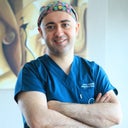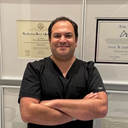Loss of Sensation After Breast Augmentation?
I am 34 and thinking about getting breast implants mostly to even out my chest (one breast is a C-cup, the other is a B-cup). I want my breasts to look better and more symmetrical, but I am really scared of losing sensation in this area. What I want to know is - Will breast implants cause me to lose sensation in my breasts? Is there anything I can do to avoid this, or is it inevitable if I undergo breast augmentation? Thanks a lot!














